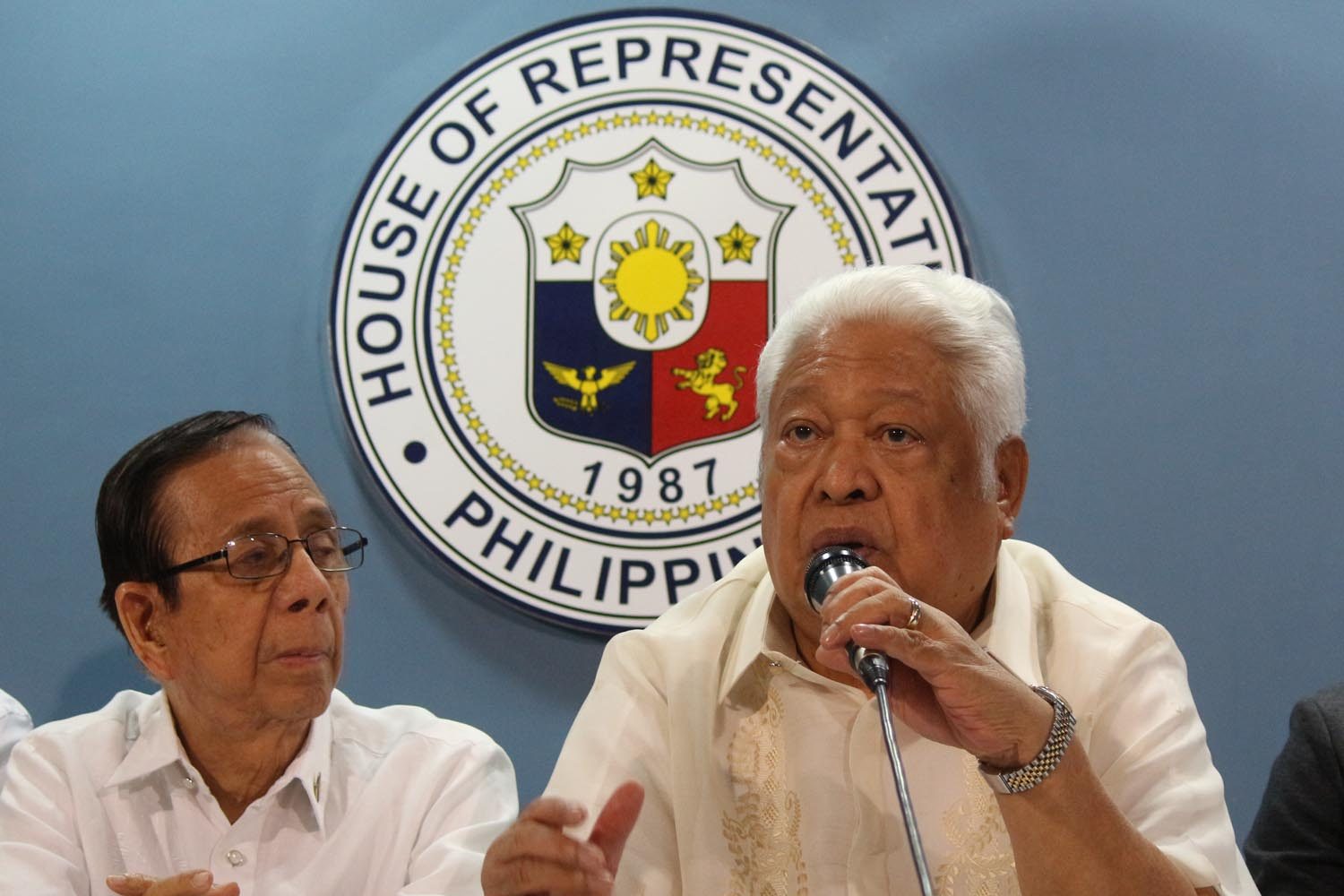SUMMARY
This is AI generated summarization, which may have errors. For context, always refer to the full article.

MANILA, Philippines – Albay 1st District Representative Edcel Lagman on Monday, February 19, “challenged” the constitutionality of provisions in the Ombudsman Act, following an order to suspend House Deputy Speaker Gwen Garcia.
Lagman made the assertion during a privilege speech on Monday, days after Garcia herself delivered a privilege speech in which she called on the House to stand together against the “illegal encroachment” of the Office of the Ombudsman.
The Ombudsman last week found Garcia guilty of grave misconduct over the backfilling of the controversial Balili property in Naga City, Cebu. (READ: Gwen Garcia and the Balili property: A tale of two controversies)
Garcia was governor of the province when the property was purchased and when the backfilling was done. (READ: Garcia questions ‘timing’ of dismissal: Ombudsman ‘singled me out’)
According to Lagman, two provisions of the Ombudsman Act of 1989 contradict provisions of the Constitution.
The first, Section 8 (2), has since been struck down by the Supreme Court, which said the President does not have the power to dismiss or remove the Deputy Ombudsman.
The second, Section 21, said Lagman, should be struck down because members of Congress and even the judiciary should not be excluded from the authority of the Ombudsman.
Garcia and House Speaker Pantaleon Alvarez have insisted that the Ombudsman may not remove a member of Congress from his or her post. Malacañang, through spokesman and former House member Harry Roque, has concurred with that opinion.
“There is neither rhyme nor reason for members of the Congress and the judiciary to be excluded from the jurisdictional authority of the Office of the Ombudsman. Members of the Congress and the judiciary do not have any unique or peculiar attributes which would make them a class distinct from other public functionaries and employees who are enjoined to uphold public office as a public trust,” said Lagman in his speech.
‘Sanctuary of malefactors’
Alvarez has insisted that the Ombudsman order would not reach plenary for a vote since doing so would supposedly violate the Constitution. The House may sanction its members or even remove members through a plenary vote.
“The fundamental question is not who shall discipline [Garcia]. The transcendental issue is whether she would submit to the decision of the Ombudsman pending motion for reconsideration or appeal,” said Lagman.
“The election of a former local chief executive to the position of member of the House of Representatives is not an inoculation of immunity from the effects of a perpetual disqualification from reemployment to government service as an accessory penalty for grave misconduct,” he added.
Lagman did not mince words in pointing out Garcia’s apparent inconsistency in asserting that “public office is a public trust” during Chief Justice Maria Lourdes Sereno’s impeachment hearings while insisting that House members are exempt from the Ombudsman’s sanctions.
“Should this chamber be the sanctuary of malefactors or the refuge of those found culpable by the Ombudsman? The ball is now in the court of Speaker Alvarez. Whether he freezes the ball or throws it out of bounds, is his accountability,” Lagman said. – Rappler.com
Add a comment
How does this make you feel?
There are no comments yet. Add your comment to start the conversation.